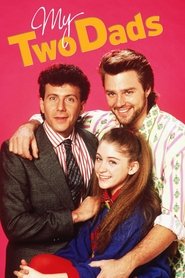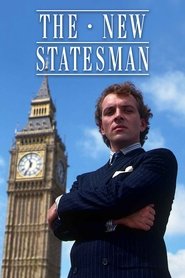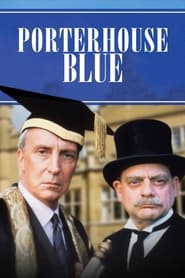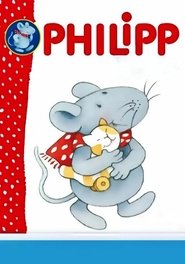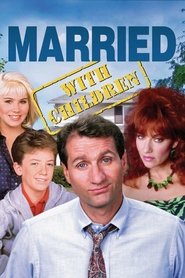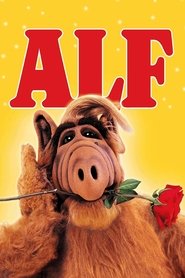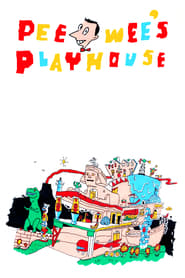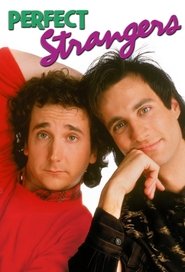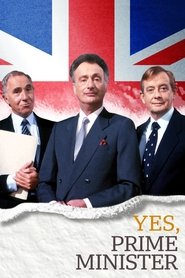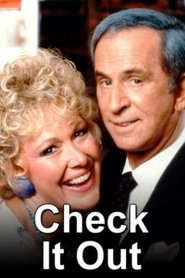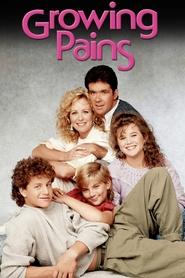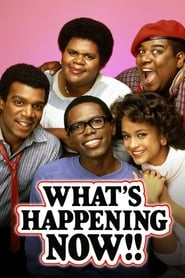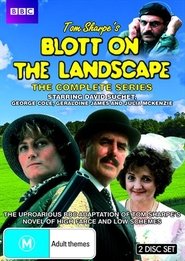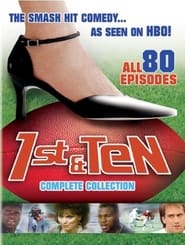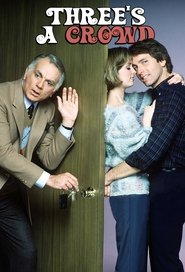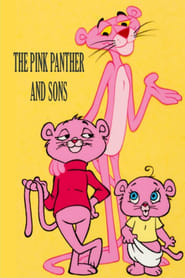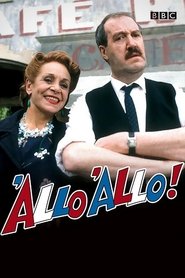New Comedy TV Series on Tubi TV - Page 42
-
My Two Dads
1987
My Two Dads
1987
star 6.2Joey and Michael, who fought over the same woman 13 years ago now have, upon her death, been awarded joint custody of her daughter - who might be either of theirs. So how do the men settle their problems? With a paternity test? No way. Instead, they all move in together to raise Nicole as a two-dad nuclear family. Under the watchful eye of the family court judge, dads and daughter adjust to their new situation. -
The New Statesman
1987
The New Statesman
1987
star 7.4The New Statesman is a British sitcom of the late 1980s and early 1990s satirising the Conservative government of the time. -
Porterhouse Blue
1987
Porterhouse Blue
1987
star 7.2Cambridge, Great Britain, 1980s. When the headmaster of Porterhouse College dies without naming a successor, the government appoints a former graduate whose ideas clash with the extreme conservatism that reigns at the institution. -
Philip the Mouse
1987
Philip the Mouse
1987
Philip, a lovely mouse, is indomitable, intelligent, and very imaginative. Together with his toy cat, he embarks from adventure to adventure, mastering the small quirks of everyday life. -
Kimagure Orange Road
1987
Kimagure Orange Road
1987
star 6.7Kyosuke Kasuga, fifteen, moves to a new city and falls for Madoka Ayukawa. She's friendly when they're alone, but acts like a delinquent when in front of others. Kyosuke meanwhile struggles not to break the heart of Hikaru Hiyama, who fell in love after seeing him make an impossible basketball shot. To add the cherry to this particular sundae, Kyosuke and his family (sisters, grandfather, and cousins) all have various powers. And while Kyosuke's desperate to keep those powers a secret, his younger sisters (among others) aren't quite as concerned about it. -
Married... with Children
1987
star 7.7Al Bundy is an unsuccessful middle aged shoe salesman with a miserable life and an equally dysfunctional family. He hates his job, his wife is lazy, his son is dysfunctional (especially with women), and his daughter is dim-witted and promiscuous. -
ALF
1986
ALF
1986
star 7.7A furry alien wiseguy comes to live with a terran family after crashing into their garage. -
Pee-wee's Playhouse
1986
Pee-wee's Playhouse
1986
star 7.1Join Pee-Wee Herman and his friends Chairry, Miss Yvonne, Cowboy Curtis, Jambi the Genie and others as they play around in Pee-Wee's magical Playhouse! -
Perfect Strangers
1986
Perfect Strangers
1986
star 6.7The chronicles of the rocky coexistence of midwestern American Larry Appleton and his distant cousin from eastern Mediterranean Europe, Balki Bartokomous. -
Boon
1986
Boon
1986
star 5.5Boon is a British television drama and modern-day western series starring Michael Elphick, David Daker, and later Neil Morrissey. It was created by Jim Hill and Bill Stair and filmed by Central Television for ITV. It revolved around the life of a modern-day Lone Ranger and ex-firefighter, Ken Boon. -
Yes, Prime Minister
1986
Yes, Prime Minister
1986
star 8.4James Hacker MP the Government's bumbling minister for Administrative Affairs is propelled along the corridors of power to the very pinnacle of politics - No. 10. Could this have possibly have been managed by his trusted Permanent Private Secretary, the formidably political Sir Humphrey Appleby who must move to the “Top Job” in Downing Street to support him, together with his much put upon PPS Bernard Wolley. What could possibly go wrong? -
Check It Out!
1985
Check It Out!
1985
star 2.7Check it Out! is a Canadian television sitcom, which aired on CTV from September 1985 to April 1988. The series also aired in the United States in syndication and on the USA Network. -
Growing Pains
1985
Growing Pains
1985
star 6.5Fatherhood has taken on a whole new meaning for Jason Seaver, who has assumed the chores of cooking, cleaning and minding the kids so that his wife, Maggie, can pursue a career in journalism after spending 15 years as a housewife. -
What's Happening Now!!
1985
star 6.3What's Happening Now!! is an American sequel series of What's Happening!! It ran in syndication from 1985 to 1988. Like the previous series, What's Happening Now!! is loosely based on the motion picture Cooley High. -
Blott on the Landscape
1985
star 7.5A thwarted Lady Maud runs off to her solicitor to start divorce proceedings and that gives Sir Giles his bright idea-why not run the proposed bypass for the area through their very own Cleene Gorge, thereby wrecking Lady Maud's ancestral home and copping rather a lot of compensation from the government to boot? Witness the frolics of the bumbling dundridge - the Y-front clad man from the ministry, Sir Giles' versatile Mrs Forthby - Mediterranean harlot and naughty schoolgirl extraordinaire, not forgetting Blott himself, gardener and mystery man, casting his enigmatic eye over the eccentricities of the great British aristocracy... Starring, George Cole, Geraldine James, David Suchet, Simon Cadell and Julia McKenzie -
The Pickwick Papers
1985
The Pickwick Papers
1985
star 6.3Mr Pickwick, Tupman, Winkle, Snodgrass and Sam Weller begin their travels through the England of stage-coaches and coaching inns. -
1st & Ten
1984
1st & Ten
1984
star 5.91st & Ten is an American situation comedy that aired between December 1984 and January 1991 on the cable television network HBO. Featuring series regulars Delta Burke and veteran Reid Shelton, it was one of cable's first attempts to lure the lucrative sit-com audience away from the "Big Three", by taking advantage of their freedom to include occasional cursing and nudity. -
Three's a Crowd
1984
Three's a Crowd
1984
star 6.5Three's a Crowd is an American television sitcom sequel to Three's Company. It is loosely based on the British TV series Robin's Nest, which was itself a spin-off of Man About the House, on which Three's Company was based. -
Pink Panther and Sons
1984
star 7.2Pink Panther and Sons is an American animated Pink Panther television series produced by Hanna-Barbera Productions and MGM/UA Television. The series was originally broadcast on NBC from 1984 to 1985 and moved to ABC in 1986. The original Pink Panther cartoons were produced by DePatie-Freleng Enterprises, is in the TV animation industry, but in 1981, the studio was sold to Marvel Comics and renamed Marvel Productions. David DePatie and Friz Freleng served as producers for the series. -
'Allo 'Allo!
1984
'Allo 'Allo!
1984
star 7.8The misadventures of hapless cafe owner René Artois and his escapades with the Resistance in occupied France.
 Netflix
Netflix
 Amazon Prime Video
Amazon Prime Video
 Apple iTunes
Apple iTunes
 Apple TV Plus
Apple TV Plus
 Disney Plus
Disney Plus
 Google Play Movies
Google Play Movies
 Paramount Plus
Paramount Plus
 Hulu
Hulu
 HBO Max
HBO Max
 YouTube
YouTube
 fuboTV
fuboTV
 Peacock
Peacock
 Peacock Premium
Peacock Premium
 Amazon Video
Amazon Video
 The Roku Channel
The Roku Channel
 AMC+
AMC+
 Kocowa
Kocowa
 Hoopla
Hoopla
 The CW
The CW
 Vudu
Vudu
 Starz
Starz
 Showtime
Showtime
 PBS
PBS
 Pantaflix
Pantaflix
 FXNow
FXNow
 Tubi TV
Tubi TV
 Kanopy
Kanopy
 Comedy Central
Comedy Central
 Crunchyroll
Crunchyroll
 Microsoft Store
Microsoft Store
 Redbox
Redbox
 Sun Nxt
Sun Nxt
 ABC
ABC
 DIRECTV
DIRECTV
 Crackle
Crackle
 Fandor
Fandor
 Plex
Plex
